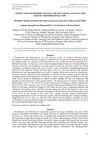Search
for
Sort by
Research
60-90 / 151 resultsresearch Therapeutic Implications of Topical Cetirizine 1% in Treatment of Male Androgenetic Alopecia: A Case-Controlled Study

research Topical Cetirizine for the Management of Androgenic Alopecia: Results of a Pilot Study
Topical cetirizine may help increase hair length in male pattern baldness and could be an alternative to minoxidil with fewer side effects.

research Compatibility of Cetirizine Hydrochloride, Dutasteride, Hydrocortisone Acetate, Nicotinamide, Progesterone, and Pyridoxine Hydrochloride in TrichoSol, A Natural Vehicle for Hair Solutions
TrichoSolTM is safe for hair loss treatments with specific ingredient stability for up to 180 days.

research The Efficacy of Topical Prostaglandin Analogs for Hair Loss: A Systematic Review and Meta-Analysis
Topical prostaglandin analogs may help with hair growth but more research is needed.

research The Impact of Monotherapies for Male Androgenetic Alopecia: A Network Meta-Analysis Study
"Dutasteride 0.5 mg daily is the most effective treatment for male hair loss."

research Comparing Current Therapeutic Modalities of Androgenic Alopecia: A Literature Review of Clinical Trials
Some treatments for hereditary hair loss are effective but vary in results and side effects; new therapies show promise but need more research.

research A Preliminary Study on Topical Cetirizine in the Therapeutic Management of Androgenetic Alopecia
Topical cetirizine improves hair density and thickness in androgenetic alopecia, but more research is needed.

research Dermatologic Reactions to Targeted Therapy
Targeted cancer therapies can cause skin side effects, which should be treated early to help patients' quality of life and treatment adherence.

research Androgenetic Alopecia: Oral Minoxidil Versus Other Drug Therapies
Combining two treatments for hair loss works better than using just one.

research Trachyonychia Associated with Alopecia Areata and Secondary Onychomycosis
An 8-year-old girl had nail and hair issues that improved without specific treatment, but fungal nail infection was hard to cure.

research Physiopathology and Current Treatments of Androgenetic Alopecia: Going Beyond Androgens and Anti-Androgens
Hair loss treatments work better with lifestyle changes.

research Clinical And Preclinical Approach In AGA Treatment: A Review Of Current And New Therapies In The Regenerative Field
New regenerative therapies show promise for treating hair loss.

research Current Understanding and Treatment of Sex Hormone-Related Hair Diseases
Sex hormones affect hair growth and loss, and treatments for related hair diseases include various medications, hair transplantation, and light therapy.

research Faculty Opinions Recommendation of Topical Valproic Acid Increases the Hair Count in Male Patients with Androgenetic Alopecia: A Randomized, Comparative, Clinical Feasibility Study Using Phototrichogram Analysis
Applying valproic acid on the scalp increased hair growth in men with hair loss.

research Oral Minoxidil Therapy in Hair Loss: Where Do We Stand?
Oral minoxidil is effective for various hair loss types and may improve male sexual function, but aspirin can reduce its effectiveness.
research The Molecular Mechanism of Natural Products Activating Wnt/Beta-Catenin Signaling Pathway for Improving Hair Loss
Natural products may help treat hair loss by promoting hair growth with fewer side effects.

research The Latest Reports on Androgenetic Alopecia
New treatments for common hair loss are needed.

research Gray Patch Tinea Capitis in Two Siblings
Two siblings with gray patch tinea capitis were successfully treated after identifying risk factors.
research Scabies with Secondary Infection Resembling Kerion-Type Tinea Capitis
An 8-year-old boy with a scabies infection was successfully treated with permethrin, antihistamines, and antibiotics.
research Androgenetic Alopecia – Update 2022

research Repurposing of H1-Receptor Antagonists Cetirizine, Loratadine, and Fexofenadine for Systematic Analysis of ClinicalTrials.gov Trials Using Semi-Automated Processes
Custom software found that common allergy drugs might have new uses for various conditions and could improve survival in some cancers.
research Urticaria Pigmentosa-Like Skin Disease in a Domestic Shorthair Cat
A cat with severe skin issues improved with dexamethasone and cetirizine.

research An Urticarial Drug Eruption Caused by Tofacitinib for Alopecia Universalis
A patient with alopecia had hair regrowth with tofacitinib but developed a skin reaction, choosing to continue the treatment despite the side effect.

research Clinical Aspects, Pathogenesis, and Therapy Options of Alopecia Induced by Hormonal Therapy for Breast Cancer
Breast cancer hormone therapy can cause hair loss, which can be treated with daily applications of specific topical solutions like minoxidil and hydrocortisone butyrate.

research Effect of Various Herbal and Chemical Enhancers on Skin Permeability to Cetirizine: A Study of Changes in Rat Skin Cells
Eucalyptus and Tween 80 most effectively increase cetirizine skin absorption.
research 1,314
The convention highlighted the importance of comprehensive patient care and early diagnosis in dermatology.

research Successful Management of Dermatophytosis in a Desi Short Hair Domestic Kitten
The kitten's skin infection was cured with medication in three weeks.

research Epidermophyton Floccosum as a Possible Etiological Agent of Tinea Capitis: A Case Report
A fungus called Epidermophyton floccosum can cause scalp infections.

research Coinfection of Demodex Mange and Malassezia Fungi on the Skin of Crossbreed Balinese Dog
The dog improved significantly after treatment for skin mites and fungi.